The Sacrilege of the St. Jean Bosco Massacre targeting Jean-Bertrand Aristide
ADVERTISEMENT
The St. Jean Bosco Massacre was not the first time or last Aristide's life would be endangered. He'd already defied six or more attempts on his life, since in 1985 a mass he celebrated incited surfacing tensions, which presaged the coup of Jean-Claude Duvaliers's dictatorship. Following the massacre, the Inter-American Commission on Human Rights reported that a group of participants in the massacre appeared on Télé Nationale, Haiti's government-owned television station, and promised a 'heap of corpses' at any mass that Aristide celebrated.
Public outrage erupted over how these home-grown terrorists dared appear on national TV, admit their involvement in the massacre, warn that more bloodshed was to come, and most galling of all, say it with impunity. The Haitian people suspected that Tonton Macoute was to blame. Moreover, during the massacre, neither the Haitian police nor army sought to protect the parishioners. Instead, they offered protection to the terrorists, surrounding the church.
The mayor of Port-au-Prince, Franck Romain, also believed to be a past member of Tonton Macoute, was alleged to have been involved in the massacre in St. Jean Bosco. Romain, Duvalier's chief-of-police earlier in his regime, said he thought Aristide had been "justly punished." Romain, apparently a political supporter of Namphy, an ousted dictator in a Haitian coup after the massacre, found refuge at the Dominican Republic Embassy, where he was granted safe passage out of Haiti by the newly-installed Avril, an action the Human Rights Watch reported was politically motivated, because the Avril regime had the legal authority of not granting asylum, but instead abided by the Dominican Republic's decision.
Since the date of the St. Jean Bosco Massacre, protestors march on the streets of Port-au-Prince annually, to demand a return of democracy to Haiti and honor the fallen of that massacre. On September 11, 2004, masses of Lavalas protestors voiced their demands that Haiti be returned to democracy, while marching the streets of Port-au-Prince. At this time, the brooding climate of fear and dread held the country in its vise, as the pro-democracy demonstrators chanted loudly, "Lula, return President Aristide today!!" outside the United Nations Operations Headquarters. Later, at Sacre Coeur church, a Lavalas spokesperson demanded that Gerard Latortue "have the decency to maintain justice", denouncing the U.S.-backed de facto regime for "freeing murderers and thugs."
The protestors from the massacre raged that Haiti's present government is loyalists, who align themselves with U.S. policy decisions, obstructing Haiti's desire for a pro-democratic government. The U.S. government's anti-democratic policy towards Haiti seems to have numbed the institution of the Fourth Estate, the news media, as they have cast a blind eye to the truth of what is actually taking place in Port-au-Prince; the Miami Herald, in particular.
One of their reporters, who was supposedly covering the Lavalas protests, reported some disturbing inaccuracies, trusting, or maybe not really caring that his Haitian informants were providing false information to him. A significant falsehood such as "In Port-au-Prince neighborhoods such as . . . Bel Aire--(an) Aristide strong-hold--weapons abound." The actual fact is that there was "never a single weapon brandished."
Jean-Bertrand Aristide has been much maligned by his political opponents, including the U.S. government, who have gone so far as to brand Aristide a drug lord, dictator, and voodoo practioner, a campaign that spent tens of millions of dollars and failed. The U.S. Bush administration, the originator of this plot, was prepared to do whatever it could to stamp out the seeds of democracy in Haiti. But the Haitians, Aristide among them, have endured much abuse in their history as a people, and they will not crumble to the will of terrorists, whether home-grown or foreign-hatched.
Read more: jean-bertrand aristide, Jean Bertrand Aristide, massacre, St. Jean Bosco, Security Crime Law and Order
Main | Antoine Izmery Assassination »
Leave a Reply
Name (required) E-mail (required, will not be published)
» »
Our objective is to share with you news and information about Haiti and the people of Haiti. Traditions, habits and the way we were or grew are alive in this site. We highly recommend that you Subscribe to our Newsletter and also share with us some of the things that are memorable and made us unique people.


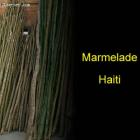 Marmelade, Haiti
Marmelade, Haiti 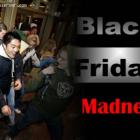 Black Friday Shopping Season
Black Friday Shopping Season 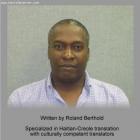 Haitian Creole Translation
Haitian Creole Translation 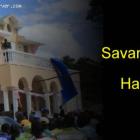 The Town of Savanette, Haiti
The Town of Savanette, Haiti 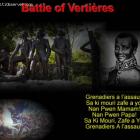 Battle of Vertieres
Battle of Vertieres